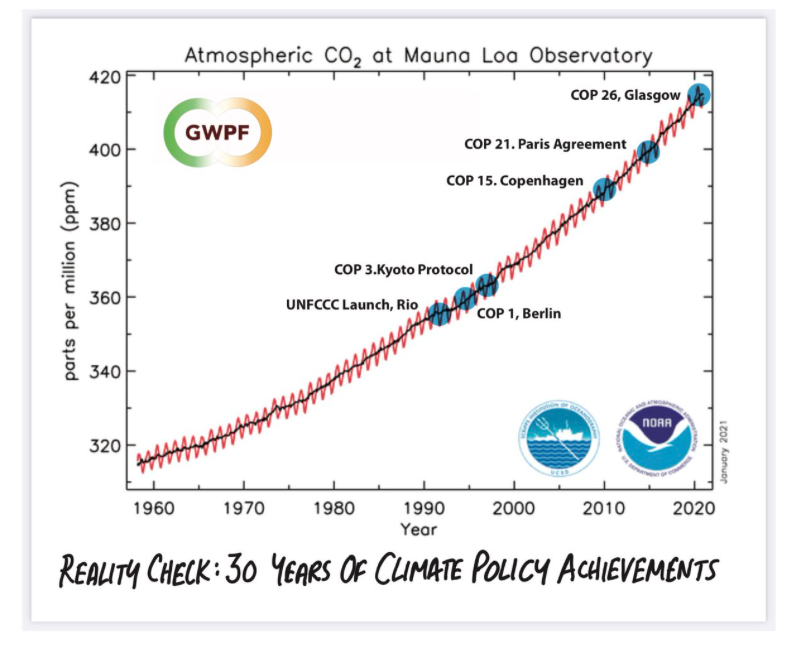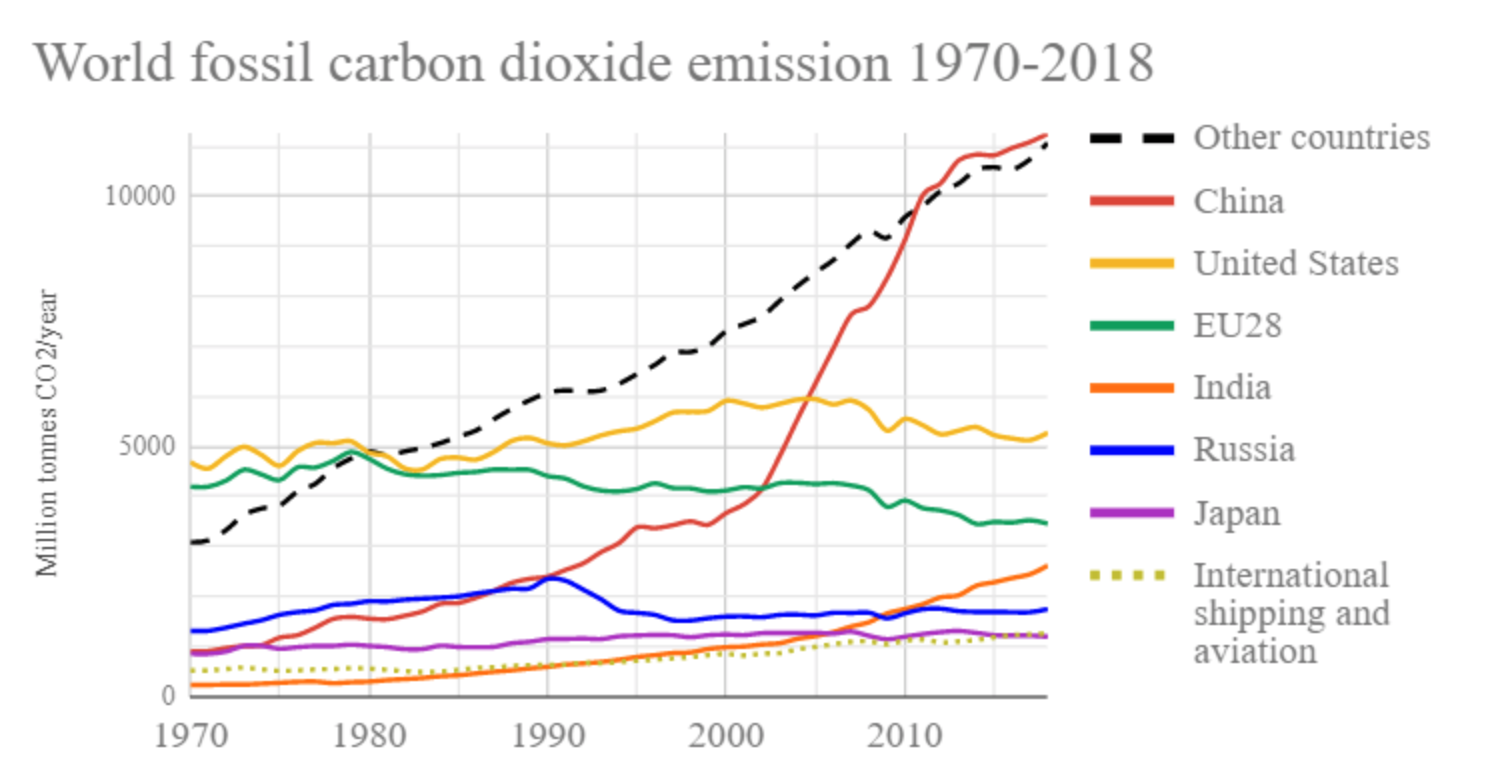COP26 And The Hubris Of Our Political Overlords
/There is a very reasonable argument to be made that the climate-related Conferences of Parties (COPs) that occur annually under UN auspices are terrible things. They cost (i.e., waste) enormous resources, and they have the potential to do great damage to the world economy and the well-being of the people. Fair enough. But on balance, my view is that it’s a good thing we have them. I can think of no other comparable activities that put on such dramatic and widely-viewed display the immeasurable foolishness and hubris of our political overlords.
By the time you read this, COP26 will likely have opened in Glasgow, Scotland. Thousands will be in attendance. Most every country of the world has sent at least some high-level delegation, and the majority are sending the President or Prime Minister. U.S. President Joe Biden will be there in person, along with PM Boris Johnson of the UK, President Emanuel Macron of France, Chancellor Angela Merkel of Germany, and comparable heads of state from across Europe, Asia, Africa, Australia, Oceania, and North and South America. U.S. climate envoy John Kerry used his usual portentous tone to set the stage (as quoted by the BBC):
America's climate envoy John Kerry says the COP26 climate change summit in Glasgow is the "last best hope for the world to get its act together".
The idea is that hundreds of global leaders, not a one of whom has much if any idea how the world’s energy systems work, will come together to agree and order that those systems must be completely discarded and replaced. Currently, all the world economies run mostly on fossil fuel energy; but these political leaders are oh so much smarter than that, so they will order that use of such energy must be reduced and then ended, and associated carbon emissions will of course decline commensurately. These people equally have no idea how or whether the newly-ordered alternative energy systems might work, or how much the new systems might cost when fully implemented. Those things, you see, are mere engineering details, too insignificant to warrant the attention of great potentates. What they do know is, as the magnificent Barack Obama put it in 2008, “this was the moment when the rise of the oceans began to slow and our planet began to heal. . . .”
Given that this is COP26 — that is, the 26th of these mostly-annual lollapaloozas since the game got started at the Rio “Earth Summit” back in 1992 — perhaps it is time to look back over these close-to-three-decades at how the whole model for controlling the world’s climate has been working out. For example, you may be wondering, since world leaders started making agreements intended to lower emissions of CO2, how much have those emissions actually gone down? Fortunately, a UN agency, the IEA, keeps a graph of annual “energy-related” CO2 emissions. Here is that graph since 1990:
Hmmm. It sure looks from that that, despite nearly 30 years of UN “climate” confabs, the overall trend in emissions is sharply up, not down. Annual world CO2 emissions, according to the IEA, were 20.5 GT in 1992, the year of the Rio conference, and are said to be 33.0 GT this year. Yes, there was a downward blip in 2020, undoubtedly associated with the pandemic, but in 2021 we have already nearly equalled the prior level, and have returned to a steep upward climb.
Or perhaps we might look at the trend of CO2 concentration in the atmosphere. My friends at the GWPF have helpfully put together a chart which combines the NOAA CO2 concentration data from the Mauna Loa Observatory with the times of the main UN conferences and agreements intended to slow the rise:
Do you spot there the close association of the main international UN conferences with the reverses in increasing concentration of CO2 in the atmosphere? If not, is there something wrong with you?
So the many UN conferences and the associated agreements and pledges of major countries to decrease carbon emissions have neither slowed the growth of emissions nor the rise of CO2 in the atmosphere. Has this whole exercise then been completely ineffective? Actually, there are many effects of these so-called “climate” policies that we can point to:
Western European countries have largely barred the further development of fossil fuel resources, including coal and natural gas. As a result, they have become increasingly dependent on Russia for those resources. Did I mention that Vladimir Putin is one of the few heads of state who have declined to attend COP26?
China has basically claimed to be exempt from the whole UN process by reason of being a “developing” country. In 1990 it was a distant third in emissions behind the U.S. and EU, and barely ahead of Russia. Today its emissions are well more than double those of either the U.S. or EU, and more like 6 times those of Russia.
Oh, China’s Xi Jinping is another one of those few world leaders who is not showing up at COP26.
Places like Germany that have most aggressively pursued fossil fuel suppression have managed to achieve consumer electricity rates in the range of triple international norms. All over Europe, energy prices are spiking. Here in the U.S., less than 10 months of a Biden presidency emphasizing suppression of fossil fuels have managed to see gasoline prices increase close to 50%.
So we look upon our world leaders and laugh at their foolishness and hubris. It’s all we can do.



